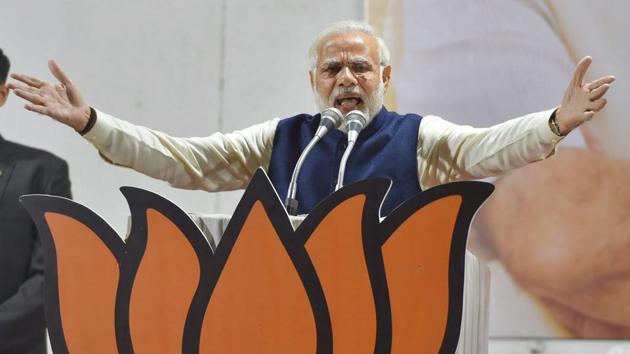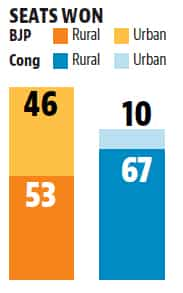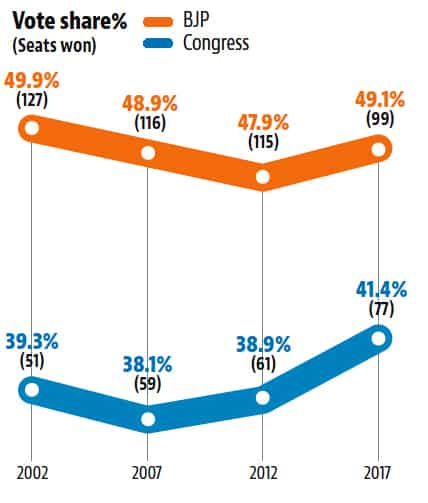Gujarat election results: Had PM Modi not led BJP’s campaign, its hopes would have taken a hit
From reacting to Mani Shankar Aiyar’s ‘neech’ remark to his shrill rhetoric about Pakistan’s interference in the Gujarat elections, Prime Minister Narendra Modi’s polemics put the Congress on the defensive.
Had Prime Minister Narendra Modi not led the Bharatiya Janata Party’s counter offensive against the Congress in Gujarat elections, deep-rooted rural discontent would have sunk the BJP’s hopes of retaining his home state.

Modi saved the day for the BJP
Pre-poll surveys such as that by CSDS-Lokniti predicted a significant narrowing of gap between the BJP and Congress before the first phase of Gujarat elections. All exit polls including that of the CSDS predicted a BJP victory in the state.
Prime Minister Modi transformed the campaign narrative during this period. From exploiting Mani Shankar Aiyar’s denigrating comments against him to his shrill rhetoric about Pakistan’s interference in the Gujarat elections, Modi’s polemics put the Congress on the defensive. This also shifted focus from the Congress’s campaign on rural distress and other economic issues.

One statistic underlines the importance of this strategy. In the first phase, the BJP lost 30.1% of the seats it held in 2012 to the Congress. This figure is 26.9% for the second phase. For Congress these numbers are 22.7% and 28.2 % in the first and second phase. These statistics show that the Congress lost momentum in the final phase of the campaign.
What is the larger takeaway from Gujarat results? A polarised urban electorate, which has also been used to long-term prosperity, has saved the BJP in one of the most difficult elections it has faced in Gujarat since 2002. This factor might not come to BJP’s rescue in many other states. Rural voters — who have voted in bigger numbers against the BJP — have a much bigger say in most other states. Can the opposition exploit these fault lines in BJP’s victory in forthcoming elections is the main question till the 2019 elections.
Congress is ahead of the BJP in rural areas

The Congress’ campaign was focused against the Gujarat model of development. It tried to portray the BJP as a party in favour of big capital and against farmers. This campaign has found resonance in rural areas. The BJP won less than half of the 126 seats in rural areas. This is a first since 2009 elections. Consistent comparisons before 2009 are not possible as assembly constituencies (ACs) were redrawn in the 2008 delimitation exercise However, urban Gujarat is still overwhelmingly in BJP’s favour. The BJP has won more than 80% of the 56 urban ACs in the state. This is despite the headwinds that demonetisation and GST may have created for the BJP.
You do not lose an election if every second voter votes for you
The BJP’s vote share in the 2017 Gujarat assembly elections is more than 49%. This is an improvement over its 2012 figure of 47.9%. This is also the Congress’ best assembly election performance in terms of vote share (41.4%) since 1995. But a vote share gap of more than seven percentage points in a bipolar election can give a more than proportionate lead in terms of seat share.






